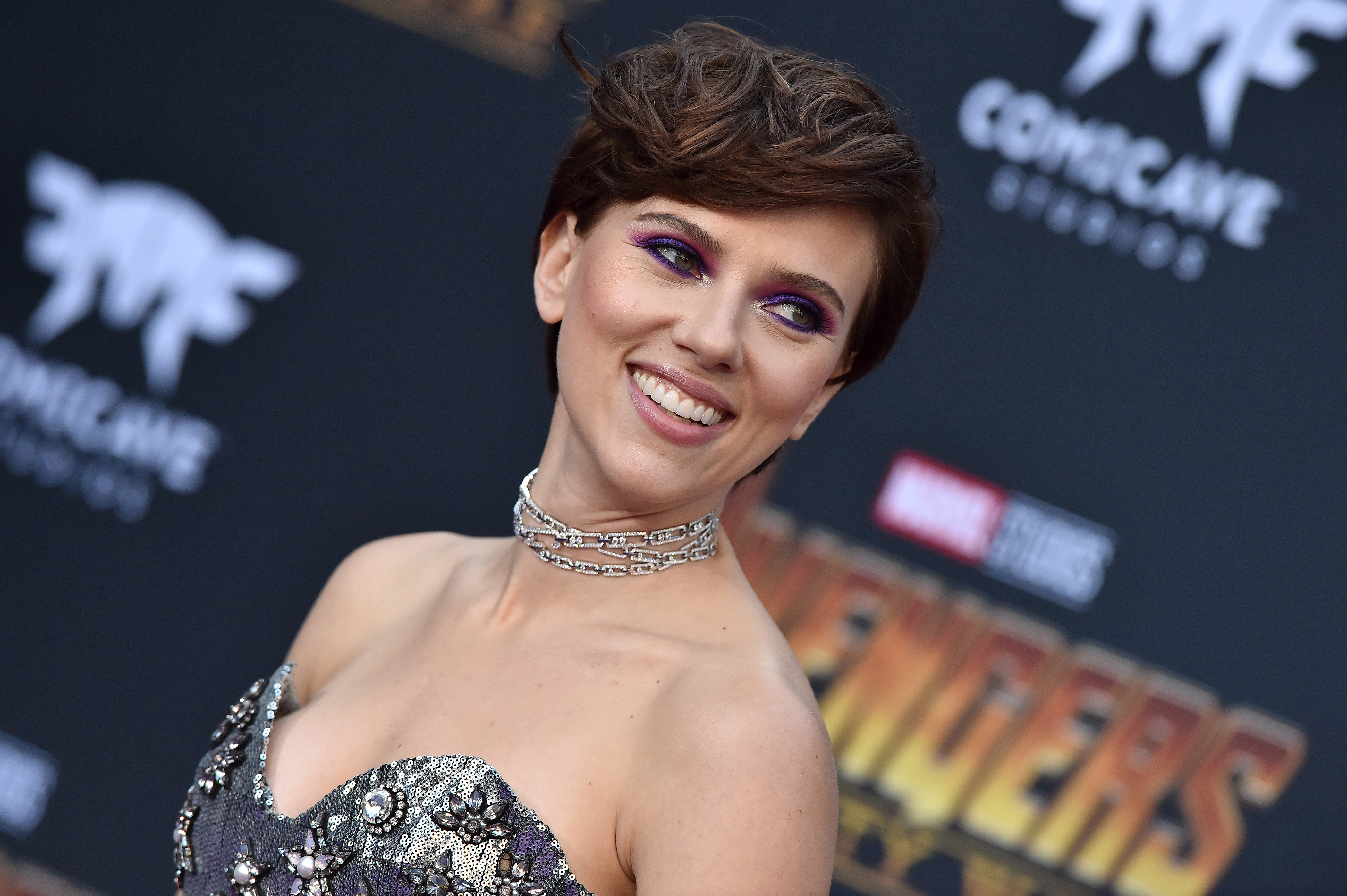Last week, Scarlett Johansson filed a lawsuit against Disney for allegedly violating an agreement to release her movie Black Widow exclusively in theaters, and now it looks as though things are getting ugly. After Disney (which is Marvel’s parent company) criticized the actress for having the nerve to demand more money during a pandemic, several women’s groups — including Women in Film, ReFrame and Time’s Up — have hit back with a joint statement calling Disney’s response a “gendered attack.”
Johansson claims that the decision to release the movie concurrently in theaters and on Disney+ — a decision that was made in order to allow people to safely view the film at home instead of sitting inside an indoor theater due to the COVID-19 pandemic — was not part of her original negotiations with the studio and resulted in lower box office numbers. Given that she was slated to receive a cut of the box office profits as part of her payment on the film, that means she lost out on some money ($50 million, by her team’s estimation). In response to her lawsuit, Disney pointed out that she was already paid $20 million for the movie and called her complaint “sad and distressing in its callous disregard for the horrific and prolonged global effects of the COVID-19 pandemic.” The studio also reportedly paid her “an unspecified percentage of revenue that came from her movie’s performance on Disney+.”
The statement from Women in Film, ReFrame and Time’s Up claims that Johansson is being unfairly dragged through the mud by the company because she’s a woman who dared to insist on being paid what she’s worth. “While we take no position on the business issues in the litigation between Scarlett Johansson and the Walt Disney Company, we stand firmly against Disney’s recent statement which attempts to characterize Johansson as insensitive or selfish for defending her contractual business rights,” the statement reads. “This gendered character attack has no place in a business dispute and contributes to an environment in which women and girls are perceived as less able than men to protect their own interests without facing ad hominem criticism.”
It’s true, of course, that women have historically had to fight tooth and nail to receive equal pay for equal work and that any woman who speaks up and asks for money is viewed as “difficult” while her male counterparts are seen as shrewd business minds. But is that…really what’s going on here?
Johansson has a net worth of $165 million. She is not exactly strapped for cash, and getting upset over the fact that people who were stuck at home during a pandemic — many of whom were out of work as a result of the virus — watched her movie on a streaming service instead of risking their lives to see it in a theater just so she could rake in a few extra million dollars is not a good look. It comes off as tone-deaf and yes, perhaps even a little greedy. Calling her out over that in this particular instance isn’t a “gendered attack;” it’s a valid criticism.
That said, ultimately the blame here lies with Disney for going back on their word. If they agreed to release the movie in theaters exclusively and give her a cut of the box office revenue, they should have gone back to her and renegotiated a new deal when it became clear that releasing the movie to Disney+ simultaneously was the best option. If there was an agreement in place and they violated said agreement, then Johansson is well within her rights to take legal action to get what she’s owed — even if it seems a little insensitive.
Thanks for reading InsideHook. Sign up for our daily newsletter and be in the know.

















